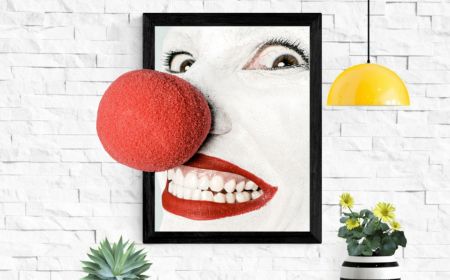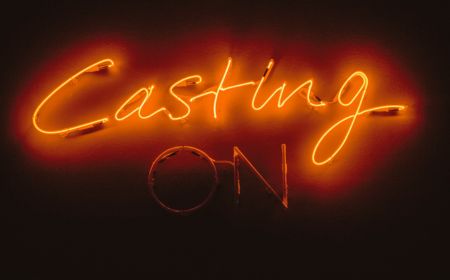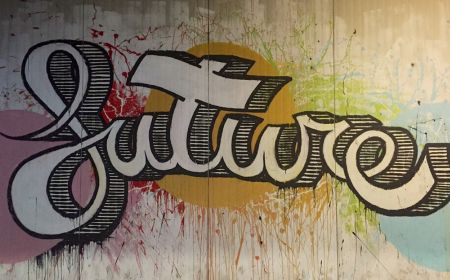How to effectively conduct a voice-over search?
Tips and advice for finding the ideal french voice-over actor
Introduction
In a world where attention spans are shrinking and visual content is saturating all platforms, it's essential to find a way to stand out from the crowd.
Whether you're creating a captivating commercial, an explanatory video, a corporate message or a podcast, the voice you choose can make or break your project.
But with so many talented artists out there, how do you find THE VOICE that perfectly embodies your brand and delivers your message with impact?
From understanding the different types of voice and their unique qualities to finding the right tone and style, here are some tips to help you find the right French voiceover actor to bring your message to life.
The importance of voice-overs in the audiovisual industry
Voice-overs have become an essential part of marketing and advertising strategies, as they have a unique ability to engage, inspire and even influence consumers.
By using the right tone, the right rhythm and the right emotions, the actor effectively conveys a brand's message, building trust and possibly prompting action.
Voice-overs therefore play a central role in raising the profile of a brand or company..
They have the ability to arouse emotions and convey complex information in a concise and powerful way, creating a personal bond with listeners.
Whether it's advertising, product presentations of for documentary narration, for motion design videos, TV programmes, voice-overs, audio books, podcasts, animated films, video games, or institutional/corporate films, mobile applications, television and radio programmes and reports, dubbing, toy voices, etc., education courses, the voice-overs are a MUST!
How do you choose the right voice-over actor for your project?
To choose the 'best' french voice-over actor for you, it's important to consider a number of aspects.
Of course, the quality of the voice must also be taken into account. The actor must have impeccable elocution and articulation, and be able to adapt his performance to the desired context.
It's also important to avoid the overly caricatured voices you sometimes hear in television reports.
Then there's the experience of the voice-over actor. An experienced voice-over actor will have a better understanding of the nuances of narration and will be able to deliver a more convincing performance.
What's more, you'll have to choose between a female or male voice.
Despite the subjectivity of such a choice, male and female voices have different tonalities (soprano, mezzo-soprano and contralto for female voices and tenor, baritone and bass for male voices) which can have an impact on the way people perceive your message.
Finally, it's important to find a voiceover artist who can work with you in complete confidence and who will be able to record your script quickly and with professional sound quality.
Here is a video of a professional recording made by Frédéric Blindt in the "Radio France" studios:
Things to consider when selecting a voice-over actor
Once you've chosen a particular artist, there are a number of things you need to check to ensure that the collaboration goes smoothly.
The first is the actor's availability, whether for a studio recording in the town of your choice or a home studio session conducted remotely. The best thing to do is to anticipate the production period as far as possible so that you have several choices of dates.
Depending on the recording date chosen, ensure that the recording can be sent to a server within 12 or 24 hours (or more if it is a very large volume).
Then, if the recording is taking place in a home studio, make sure that the actor has a professional environment in terms of insulation and acoustic treatment, as well as professional equipment, in particular microphones, preamplifiers and audio interfaces.
Decide with him whether the audio should be cleaned of unwanted breaths or noises or whether the file should remain raw.
And lastly, to find out its position in the event of subsequent revivals if a change of text or a second take has to be made.
Working with a professional voice-over: advantages
As a recognized professional, the actor will understand your requirements in all their aspects, and will be able to ask you the right questions in order to detect all your needs in advance and offer you the best possible service.
Thanks to his experience and expertise as an actor, he is able to record several versions of your script for a wider artistic choice.
In addition, if the actor has a state-of-the-art home studio, he or she must also master the techniques of recording, producing and editing a voice-over, which is a significant added value in terms of audio editing and speed of execution.
Tips for successful voice-over casting
Whether you're searching for a voice-over talent using a search engine, a voice-over directory or a voice-over agency, once you've refined and checked the above elements, you have a number of options open to you.
In short, this is classic.
Let's just say that if you're hesitant and in a hurry, this can be a solution, but in this case it's better to ask for a test on a text lasting between 30 seconds and 1 minute, and to use this process sparingly. :-)
Voiceover rates and budgeting
Let's consider 3 scenarios:
1- You know your maximum budget and communicate it to the actor, who may or may not accept it.
This budget must take into account the recording, the rights relating to the type and duration of broadcast, and possibly the length of the script (for e-learning or dubbing, for example).
2- The actor sets his rate according to the practices of the profession and his reputation.
3- This applies to documentaries, dubbing or voice-overs, and in France prices are set by an agreement (DAD-R).
To deal precisely with voice-over rates would require an entire article, which is not the main purpose of this "guide", but here are a few "general" pointers.
A distinction must be made between :
Bear in mind that a voice-over actor is a professional and must therefore be remunerated according to his or her experience and the practices of the profession if you want quality work and a trusting collaboration.
The future of voice-over: Trends and emerging technologies (conclusion)
In a highly competitive sector, voice actors are now very abundant, especially since the SARS-CoV-2 crisis.
As major players in a burgeoning audio production sector where technological innovations and uses are constantly evolving, new media are emerging.
New applications are emerging, marketing needs are exponential, streaming is exploding, podcasts are all the rage, and the need for information and the need to be identified and share values mean that the voice-over profession has a bright future ahead of it.
On the other hand, artificial intelligence is beginning to make inroads in all fields, and voice is no exception. AI is now part of our lives, and we're going to have to learn how to tame it.
The rendering of a computer-generated voice will increasingly be an illusion in terms of form, but... in terms of substance - i.e. the precise expression of a feeling at a given moment, of a mood, of a small comma, of a breath according to a specific context or word, of an imagination, of a fleeting transition, in short what really brings a text to life - it is undoubtedly the expression of the living and therefore of the human.
If you're looking for a french voice-over that gives meaning to your message, it's best to call on an experienced voice-over actor!
So, let's end with this quote from Louis Jouvet, whose intelligence was anything but artificial: «How hard you have to work to be natural!»
Naturally.








Networks